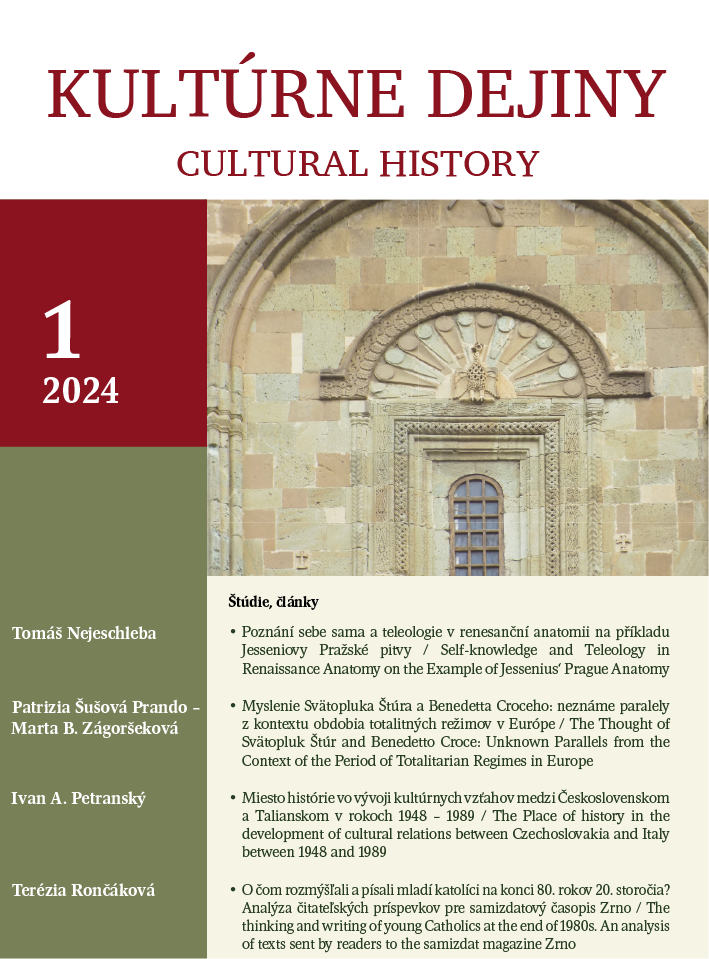Myslenie Svätopluka Štúra a Benedetta Croceho: neznáme paralely z kontextu obdobia totalitných režimov v Európe
The Thought of Svätopluk Štúr and Benedetto Croce: Unknown Parallels from the Context of the Period of Totalitarian Regimes in Europe
Author(s): Patrizia Prando Šušová, Marta ZágoršekováSubject(s): History, Philosophy, History of ideas, Philosophy of History
Published by: VERBUM - vydavateľstvo Katolíckej univerzity v Ružomberku
Keywords: Slovak and Italian History; History of European Philosophy; Totalitarian Regimes; Fascism; Svätopluk Štúr; Benedetto Croce
Summary/Abstract: In the history of European philosophy, we can find many similarities among philosophers from different countries that have shown that philosophical thinking knows no boundaries, despite language barriers. In this context, we must consider the difficulties of many Slovak philosophers writing in the Slovak language, and the fact that their works have not been translated into other European languages. For this reason, many European philosophers did not know the thought of other philosophers, who struggled like them against negative phenomena, such the fascist doctrine. Based on these facts, we have identified some similarities between the Slovakian philosopher Svätopluk Štúr and the Italian philosopher Benedetto Croce, who before and during World War II took a clear stance against the fascist regime and all expressions of extremism. Štúr was familiar with Croce's philosophy through translations into Czech, whereas Croce did not have Štúr's works available due to the lack of translations. Despite language barriers, we can see how the two philosophers were able to fight against totalitarian regime through the weapons of thought, in the name of the ideals of humanism and the freedom of nations.
Journal: Kultúrne dejiny
- Issue Year: 15/2024
- Issue No: 1
- Page Range: 20-36
- Page Count: 17
- Language: Slovak

